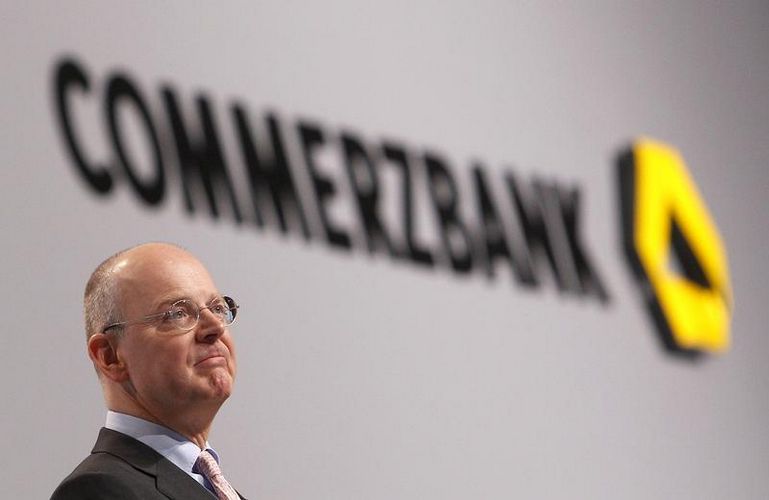Investors’ reluctance to buy senior debt from two European banks last week is the clearest sign yet that the looming implementation of new bail-in rules is causing increased anxiety among bondholders.
Commerzbank printed a €500m seven-year trade, short of the €750m it had hoped for, while Banco Popolare Societa Cooperativa found just over €450m of demand for a €500m three-year issue.
The lukewarm responses cast a shadow over the asset class as countries across Europe move to meet the January 1 2016 deadline to implement the rules, suggesting that investors are increasingly wary of buying senior risk, especially from weaker names.
“The bail-in discussion was a major topic and there was a lot of push-back from investors. Some are not buying any German senior debt at all because of the subordination,” said a banker close to the Commerzbank deal. “We might have underestimated the impact of the proposed legislation.”
In March, Germany proposed that senior debt should rank below most other senior liabilities, increasing the chance of bail-in during resolution or insolvency. Italy is also going ahead with proposals ranking corporate deposits ahead of senior debt.
“We don’t like senior German [bank] debt – but not just German senior – because of the bail-in debate that is going on right now,” said Dierk Brandenburg, senior credit analyst at Fidelity.
“We are not in the camp that we will never buy it, but right now the mark-to-market risk is high.”
The Commerzbank transaction was testing European investor demand for longer-dated German senior debt for the first time since a €1.25bn 10-year Deutsche Bank transaction in March – and that deal has widened by more than 72bp since being priced at 53bp over mid-swaps.
“We are not in the camp that we will never buy it, but right now the mark-to-market risk is high”
As for Banca Popolare SC, it could not drum up enough support for what was the first trade since Italy pushed through its bail-in proposals earlier this month.
This was despite the bank bringing a three-year deal at 255bp over mid-swaps – an apparently generous level compared with its previous deal (a €1bn five-year transaction in July that was priced at 240bp over mid-swaps on the back of a €4.5bn order book). The July bonds have since widened by 10bp.
This widening has not just taken place in German and Italian debt. British and Swiss banks opting to issue through their holding companies to meet new regulations have also seen a brutal move in their secondary bond prices.
A €1bn April 2022 issue that was priced at mid-swaps plus 75bp by Barclays in September last year – the first euro-denominated trade through its holding company – is more than 50bp wider. Similarly, a €2.25bn April 2022 priced by Credit Suisse in April at mid-swaps plus 100bp is over 30bp wider.
“Despite the initial view that it wasn’t going to be a problem, we have seen the gap between holding and operating company senior debt widen out and this is the kind of risk we are trying to avoid,” said Brandenburg.
In September, Credit Suisse opted for a transaction through its operating company after it failed to issue a 10-year holding company bond earlier in the year and the pricing differential between the two types of debt continues to grow wider – going from around 40bp–50bp to 65bp.
Who’s buying?
One of the big issues for last week’s two deals was finding real depth of investor demand – with some accounts simply not interested in buying in size.
“I think it’s becoming increasingly a problem that the natural buyers shun the asset class,” said Michael Hunseler, managing director at Assenagon Asset Management.
Another banker close to the Commerzbank trade said that it was a topic brought up by investors during marketing.
“For some, a big question was around who will be the ongoing investor base for this paper? If they engage now, will they get burnt later? Will they have to sell? Given the question around seniority and the questions at the ECB, a lot of investors were hesitant,” the banker said.
“A lot of investors are concerned that senior in Germany sits just above capital instruments and that they are not getting paid for the risk.”
Heading down
Investors’ worries are increased by the fact that ratings that are already low in some cases could be dragged lower if ratings agencies decide to take a more aggressive view on what the new bail-in rules mean for potential state support.
Commerzbank is rated Baa1/BBB+/BBB while Banco Popolare SC is rated Ba3/BB/BBB.
“The problem right now is not just a German one – it [affects] the asset class as a whole, which has become a much more complex sector,” said Fidelity’s Brandenburg.
“Issuers need to understand that they need to protect senior with more capital and manage high total capital ratios.”
For some investors, it is not just an issue of capital, but that other types of bank debt – including contingent convertible bonds – now look a lot more attractive.
“I think more investors will rethink this asset class and even CoCos might lose the perception of being kind of dodgy,” said Assenagon’s Hunseler.
“If not just spreads but also rates rise then senior bonds may become the riskiest part of a bank’s capital structure to invest in as the low running yield offers little buffer against losses.”
Market participants said the two transactions should act as something of a wake-up call, showing that access to senior funding has got that much trickier for some banks.
“How will weaker credits get a deal done? How much will they have to pay?” asked a head of FIG DCM.
(A version of this story will appear in the September 19 issue of the International Financing Review, a Thomson Reuters publication)
